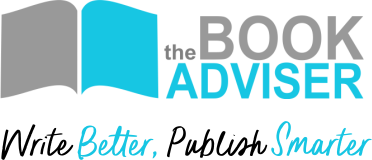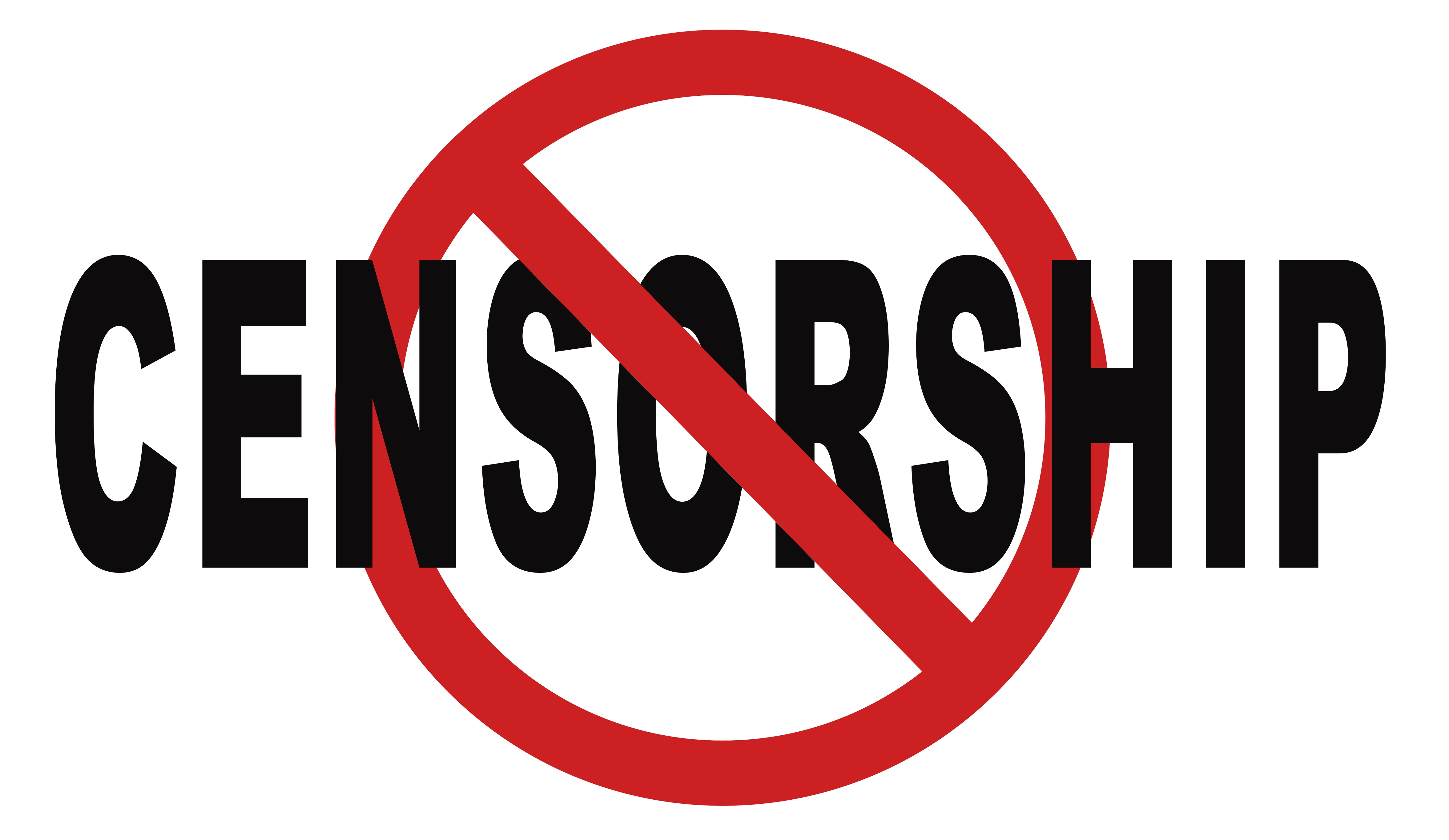

The WRITE Strategy
Welcome to The WRITE Strategy newsletter for business book writers and self publishers.
The Write Strategy is a community of business experts and leaders who want to share and leverage their knowledge, build their profile and be recognised as a leading voice in their field.
Just don't write THAT! Have you ever 'self-edited' something you wanted to say or been told you can't write that? Well . . . you can.
MAY 2025 Edition

We live in a world surrounded by a wide range of restrictions, both formal and informal, around what we can say and write, and there’s a war going on around political correctness and wokeness. The consequences of ‘getting it wrong’ when you are writing a book can be significant, so it’s no wonder people are concerned about what they want to write and what they can’t write.
It's a big challenge to craft, write and self publish a book. You are backing yourself, putting your thoughts and ideas out there into the world. Part of this is, therefore, wanting people to be inspired, motivated and like your book/ides/concepts. What’s not so motivating is when people disagree with what you’ve written, your concepts or perhaps the way you have structured it.
This fear of being criticised, judged or scrutinised (or all three) is way more than book imposter syndrome. This fear can result in you avoiding writing certain things, writing them in a way that’s less direct so as not to offend someone/anyone, or writing something that doesn’t fundamentally align with your values and beliefs (because it’s good for marketing or will make a few dollars).
So, you need to be prepared to share and write what you believe and the values that underpin these. If not, why write it?
This does require some bravery, but the alternative is writing a book that stands for nothing, delivers nothing new and just adds to morass of crap content that’s out in the world already.
How do you write so that it’s aligned with your values and beliefs?
Firstly, you need to be really clear about what your values and beliefs are and be prepared to stand up for them, defend them and discuss them…in fact your book is actually part of the way you do this.
When you catch yourself thinking ‘I can’t write THAT!’ think again. Why do think this? Is that you self-editing, not wanting to rock the boat and challenge your readers, or is it simply easier? Can you rewrite it in a way that expresses the thought/approach differently? Perhaps you can ask someone else for their opinion . . . many of our clients ask me.
Secondly, is what you are writing going to be of value to your reader/audience? Is it about being provocative/challenging – or simply your ego popping out to show off? Consider how important what you have written is to the overall message and actions you want for your reader. Does it add to or subtract from these?
Thirdly, if you strongly disagree with, or want to make a statement about something or someone clearly state why you disagree with them and why WITHOUT getting personal.
We live in a world where many people are too afraid to say what they believe and stand up for their values as they fear the criticism or worse still the backlash that might come through any number of social and traditional media platforms and channels.
But if we’re all cowered into silence for fear of offending someone or disagreeing with them, we end up in a world where no-one stands for anything anymore.
So, legal restrictions aside (and there are plenty of these) you can write THAT!
In fact, you need to write what you believe and are passionate about, clearly and concisely.
Start or keep writing, and if you’re not sure, ask me.
5 things to do
1. Add a NO AI training clause to your Imprint page. If you are self publishing, add a ‘NO AI training’ statement on the Imprint page of your book. The Australian Society of Authors (ASA) references in the US Writers Guild suggested copy.
No AI Training: Without in any way limiting the author’s [and publisher’s] exclusive rights under copyright, any use of this publication to “train” generative artificial intelligence (AI) technologies to generate text is expressly prohibited. The author reserves all rights to license uses of this work for generative AI training and development of machine learning language models.
2. Check if your self published book has been illegally scraped by the big AI companies. An investigation by The Atlantic magazine revealed Meta may have accessed millions of pirated books and research papers through LibGen - Library Genesis - to train its generative AI (Gen-AI) system, Llama. By CLICKING HERE you can type in your book title and see if your book has been pirated.
3. Read The Technological Republic. Hard Power, Soft Belief and the Future of the West by the co founders (Alexander Karp) and CEO (Nicholas Zamiska) of Palantir, a US tech company that creates and supplies tech services to the US Defence Department and the military of other nations.
4. Keen to learn more about traditional publishing options, how to pitch your book to them and more? Join the Australian Society of Authors. CLICK HERE I have been a member for a number of years and they are a terrific resource as well as advocate for writers across all genres.
5. If you are publishing through a traditional publisher, ask them what their AI clauses/agreements are. Here’s a sample of what you should ask to be put into an agreement (from the ASA).
No Generative AI training or licensing without consent. This Agreement does not confer upon the Publisher any rights or interests other than those specified. Despite anything in this Agreement to the contrary, the Publisher is prohibited, without the Author’s prior written consent, from reproducing, publishing, communicating, or otherwise using the Work or any part of the Work to develop, train or direct, Generative Artificial Intelligence technology or models (“Generative AI”), including but not limited to the mining or scraping of text, images or data from the Work, whether undertaken by the Publisher or by third parties authorised, licensed or directed by the Publisher.
Recently, Harper Collins has confirmed reports of and of an agreement with an unnamed AI technology company to allow “limited use of nonfiction backlist titles for training AI models.” It’s on an opt-in basis. Read more CLICK HERE
5 things from The Book Adviser
1. Building a customised book bot. I am learning how to build what I call a BookBot via ChatGPT. What does this mean? Integrating a book I am writing with research notes, documents, newspaper articles and more. I wanted to understand just how this would work, if it actually works so that I can share the results with everyone. I’ll keep you posted.
2. Building your reputation through a self published business book. In a business world where it seems everyone is vying to be a thought leader, expert, futurist or keynote speaker it’s harder than ever to stand out/apart from the crowd. Building your reputation through a self published book is not just about being known/being visible, it’s about being known for something different. It’s about building a reputation as someone who solves others’ problems in a unique way and the outcomes that result from it. Keep this in mind as you structure, write and self publish your book.
3. Book launch. Tony Kenck has launched his book, Strategic Business Portfolio Management. It’s a 450+ page book that encapsulates Tony’s 40+ years of knowledge in the oil and gas sector internationally. Tony is undertaking a pre-launch marketing campaign given the specialist nature of the book. CLICK HERE
4. If you want to increase sales of your book make sure you build a 12-18 month content marketing plan that you can execute over the whole period. Your book won’t sell itself, and you are the best person to market it. We work with our clients to build a Content Marketing Plan that supports their business and book goals, that requires NO PAID advertising and leverages existing and developing networks. There may be elements of this that you outsource and ways to repurpose your book content. We offer special book marketing packages as well if you have a book and it needs a reboot. CLICK HERE
5. Keep learning with ChatGPT. Check out the two sessions I did with Peter Stanford last year on You Tube about how to write better prompts…and therefore get better responses from ChatGPT. CLICK HERE
And subscribe to The Book Adviser YouTube channel. CLICK HERE
5 things to know
1. Pitching your book to a traditional publisher, what you need to know. Pitching your book to a publisher is harder than flying to the moon…MOST publishing won’t even consider your book unless you are represented by an agent. Finding an agent is also really hard (and they take yet another slice of the money you earn from sales of your book.
The reality is, as a first time book author, no matter how successful you might be as an executive or business owner, you are a risk. No one knows if your book is going to sell.
Ask yourself these four questions.
1. What distinguishes your book from others out there on your topic?
2. What level of awareness/community/fans do you have? The more the better.
3. How many endorsements do you have and from who?
4. What is your marketing and promotional plan, and are you executing on it and investing in it?
Publishers need to be able to assess whether they can sell at least 3,000 copies of your book (in Australia), If not, it’s unlikely they will take you on.
2. To sell your book you have to make it visible. As I share with all our clients, ‘It’s no good having the world’s best kept secret.
- Start building a book community early
- Start a book database
- Share your book journey on LinkedIn through posts and articles
- Start creating videos about your book topics and load onto YouTube
- Send out review copies to secure reviews and endorsements
- Identify leading PodCasters and Influencers and engage them early
- Identify key media commentators early and engage them
3. What are Advance Readers Copies (ARC)?
In traditional publishing publisher send out advance copies to reviewers and now influencers to secure positive reviews, recommendations and commentary about a book.
In self publishing, ARC serve the same purpose but you’ll need to identify and approach people to review and comment and/or endorse your book. Provide a copy of your book for free and be clear about what you are asking them to do. Do you want an endorsement for your website/media releases? Do you want them to post a review on Amazon (if you are selling your book there), Goodreads, your website, somewhere else? Do you want a Podcast host to promote your book via a special offer?
Think about what’s in it for the person you are asking. Why would they do it – what’s in it for them?
Getting other people (well-known in your sector) to comment, review and endorse your book is a great idea. Third party endorsements are way more effective than you pushing out press releases all the time.
4. How to write a book media release. The media release for your book is not what you think. In reality your book is probably not newsworthy. What MIGHT be newsworthy is your perspective on a current news item. IF you have a perspective on a current news item, craft your media release around it.
A shorthand way to structure your media release is as follows.
1. Comment with your perspective/facts about the news item.
2. Make your perspective clear…you can say what you think IF you can substantiate it.
3. What action do you want the reader to take and why?
4. Why should they listen to you? This is where you mention that you are the author of a book (title), your title/company/credentials.
5. What are your contact details?
6. Provide a PDF of your book and a professional photo of yourself.
5. Publishers Weekly (PW) is the main trade publishing magazine in the USA. Up until March 2025 you could submit your book for review consideration for free. Big publisher, indie, self-publisher whatever. NOW it will cost you US$25 to submit your book to be ‘considered’ for a review – not to be reviewed but to be considered for a review.
For those of you wanting to explore the US market this is an important fact to know.
author profile

Tim Trumper

If you're a Director, CEO or Executive seeking to make sense of AI, the trade-offs between AI decisions and your human decisions, Tim Trumper's book, AI: Game On is for you.
AI: Game On attacks the vexing and strategic dilemma of whose job it is to decide who or what decides. It answers the questions of how and why an organisation would, and could, delegate decisions to AI and explores the consequences of such decision making.
subscribe to The Book Adviser YouTube channel
Are you curious about:
- How AI is impacting book publishing
- What to do after writing your book or even
- What makes a good business book..
Subscribe to The Book Adviser YouTube channel. We're publishing new videos each week.
is it time to publish your book?
The Book Adviser has helped more than 400 business leaders, owners, consultants and entrepreneurs to successfully self publish and market their business book.
Find out more about The Book Adviser Program CLICK HERE.
help spread our message
We’re passionate about business books and helping people share their knowledge and insights to a wider audience as we believe each of us can change the world for the better, one book at a time. If you’ve found this newsletter informative, inspiring or want to share some of the books we’ve mentioned, please share it with your colleagues, friends and family.
get more of The WRITE Strategy
Do you know of someone that would benefit from our services? DM us or email [email protected]
Was this email forwarded to you? Get your own subscription by clicking SUBSCRIBE and completing our form.

Copyright 2025 - The Book Adviser